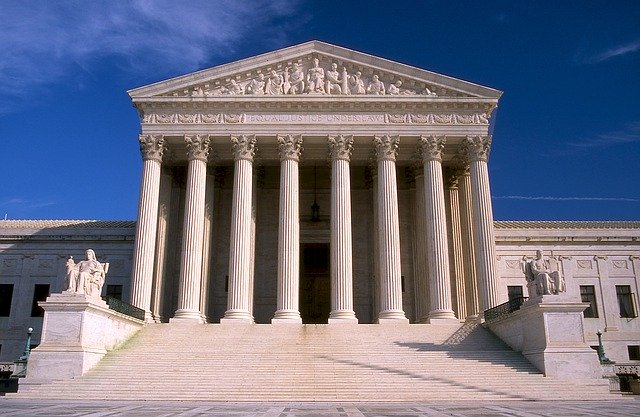The Little Sisters of the Poor today notched a big win in their fight for religious freedom, as the U.S. Supreme Court ruled 7-2 against a challenge by two states that argued an exemption from the Affordable Care Act’s mandate to provide employee health insurance coverage of contraceptives violated federal law.
But the victory may be short-lived, since the court left open the possibility for opponents to challenge in lower courts the exemption as arbitrary and capricious. Any further litigation will most assuredly continue past the 2020 election, which could bring a new U.S. president and his perspective on the issue.
In writing the majority opinion for Little Sisters of the Poor Saints Peter and Paul Home vs. Pennsylvania, Justice Clarence Thomas rejected the argument put forth by Pennsylvania and New York state that the religious exemption expanded by rule by President Donald Trump in 2017 violated the Affordable Care Act. The two states claimed the health care law authorizes the federal Department of Health and Human Services to only identify preventive plans – not to create exemptions to the law itself. Thomas noted the health care law gives DHHS “virtually unbridled discretion to decide what counts as preventive care and screenings.” He further wrote that discretion “is equally unchecked in other areas, including the ability to identify and create exemptions from its own Guidelines.”
Thomas also pushed back against the states’ argument that DHHS did not follow proper procedure – as outlined in the federal Administrative Procedure Act – when issuing the new rule implementing Trump’s executive order. Pennsylvania and New York state contended that since the final rules closely resembled the originally proposed rules, the department must not have considered any public comments. Thomas made clear all that matters is that the process was followed, and the “rules promulgating these exemptions are free from procedural defects.”
Justices Samuel Alito, Neal Gorsuch, Brett Kavanaugh and John Roberts joined Thomas’s opinion, while Alito also wrote a concurring opinion joined by Gorsuch. Justice Elena Kagan wrote a concurring opinion, which was joined by Justice Stephen Breyer. Justice Ruth Bader Ginsburg wrote a dissenting opinion that was joined by Justice Sonia Sotomayor.
The U.S. Conference of Catholic Bishops issued a press release from chairmen of two different committees: Archbishop Wenski of Miami, chairman of the Committee for Religious Liberty, and Archbishop Naumann of Kansas City in Kansas, chairman of the Committee on Pro-Life Activities. They applauded the dedication and perseverance of the Denver-based order of nuns that cares for the elderly poor in nursing homes.
“We welcome the Supreme Court’s decision,” the two archbishops stated. “We hope it brings a close to this episode of government discrimination against people of faith.”
The USCCB submitted two separate amicus curiae briefs on the case, one here and here.
This case marked the third time the HHS contraceptive mandate has come before the nation’s high court. In 2014, the justices decided in Burwell vs. Hobby Lobby that closely held corporations were exempt from the mandate but could not use the ruling to get out of other health insurance mandates or use it as discrimination veiled as religious objections. Two years later, the high court – operating with only eight members after the death of Justice Antonin Scalia – sent the nun’s challenge to the mandate in Zubik vs. Burwell back to lower courts for a compromise with the federal government.

